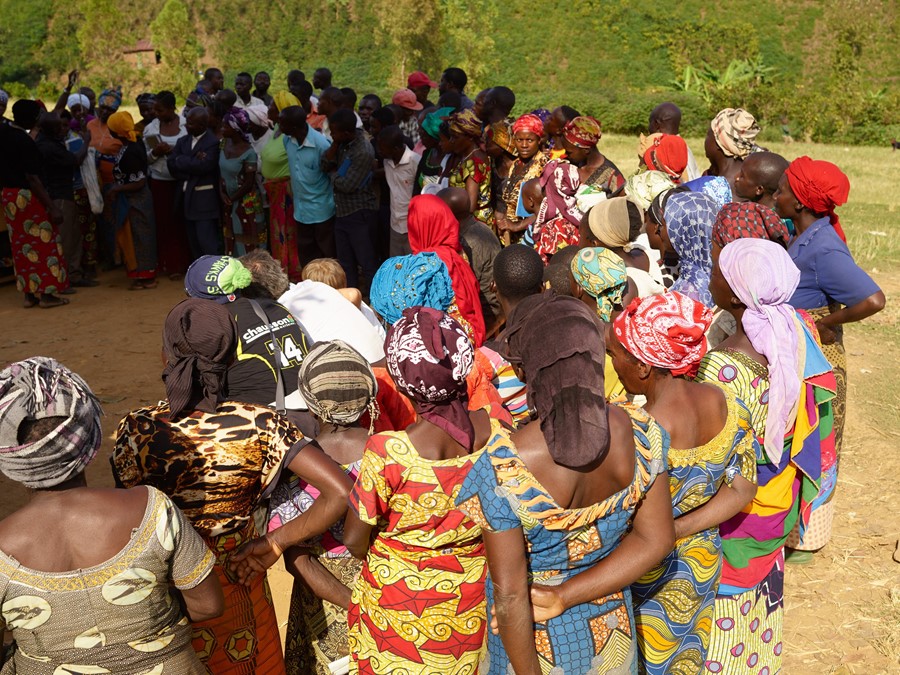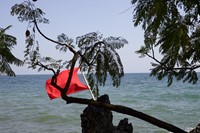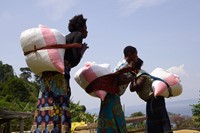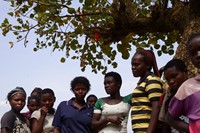Viviane Sassen is behind the first series of images created for KIVU, a new project which shares single-origin coffee from the Democratic Republic of the Congo
A creative producer by trade, Christina Hardy has spent her career helping agencies, artists and brands to bring their ideas to life – be that through commissioning photography, project management, or overseeing a brand’s photographic direction. She works in storytelling, essentially – but until now, these stories have belonged to somebody else. “I’ve never done a personal project of my own,” Hardy tells AnOther. “I was always executing other people’s ideas.”
What she was doing, while working on these big campaigns, is “drinking a hell of a lot of Rwandan coffee” – a fact not lost on her. “You kind of clock yourself when you’re doing something so regularly, so I started reading about it,” she says. Coffee’s role in Rwanda, she discovered through her research, was monumental. Not only did it help Rwanda’s war-torn economic climate to self-repair after the genocide and civil wars that ripped through it in the 1990s – agriculture was at the root of a lot of the foreign investment in rebuilding which followed – but it also provided a salve for the social environment. But just across Lake Kivu, in the Democratic Republic of the Congo, coffee didn’t seem to create the same opportunities for positive impact at all. “I wasn’t surprised to find there wasn’t as much going on with coffee in the Congo. It was very, very behind – it wasn’t in a position to benefit the way Rwanda was. I thought it was such a shame because it’s the same terrain. It’s just across the lake.”
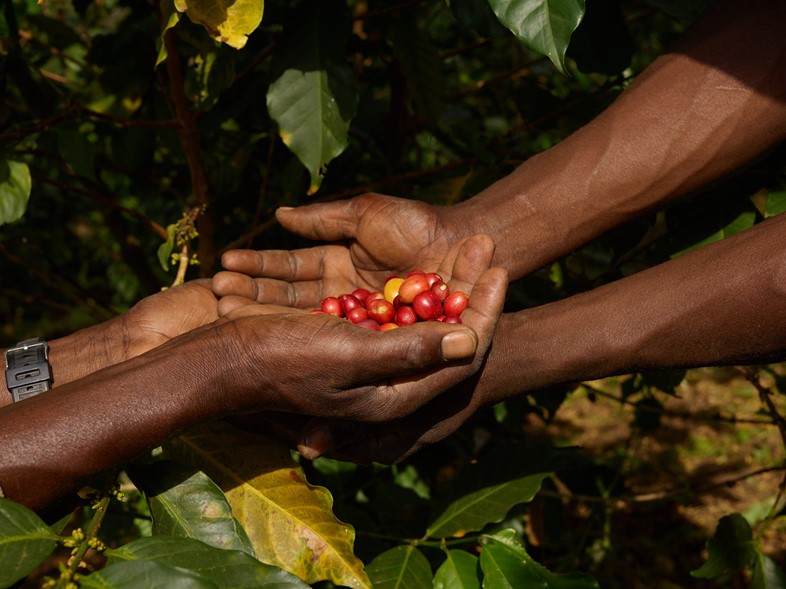
Hardy started to think more conceptually about coffee, and its role in creative culture. “It’s more than just a drink,” she says, “it chemically changes your body; it’s always part of the creative process – even if you don’t drink it, you might say ‘let’s get a coffee’ when you want to talk about something important, or just share ideas. You could argue that revolutions were started over cups of coffee – I've read that Che Guevara did a lot over coffee in Mexico City! It has a lot of symbolism attached to it.” Considered on this basis, coffee seemed to her to be a fertile ground in which to begin an initiative of her own. “It’s a platform – a bridge that connects different cultures,” she continues. Hardy hoped she could similarly connect the two competing countries on each side of Lake Kivu, creating an opportunity for DRC to benefit from the same economic advantages that Rwanda has.
“You could argue that revolutions were started over cups of coffee – I’ve read that Che Guevara did a lot over coffee in Mexico City! It has a lot of symbolism attached to it” – Christina Hardy
A couple of years and many Visa applications later, KIVU was born – a boutique coffee project sharing single-origin coffee from DRC with the intention to build local community support by promoting creativity in all of its many forms. But primarily music and photography, Hardy explains. “It’s the humanity in things I’m attracted to – the energy in music and power of visual art that I dedicate my whole career to producing. So it felt like a very natural project for me. My friends were like ‘coffee?!’ and then they’re like ‘oh, actually!’ It makes a lot of sense because coffee’s kind of a behind-the-scenes facilitator – and that’s basically what a producer is. It’s what I’ve been doing my whole life.”
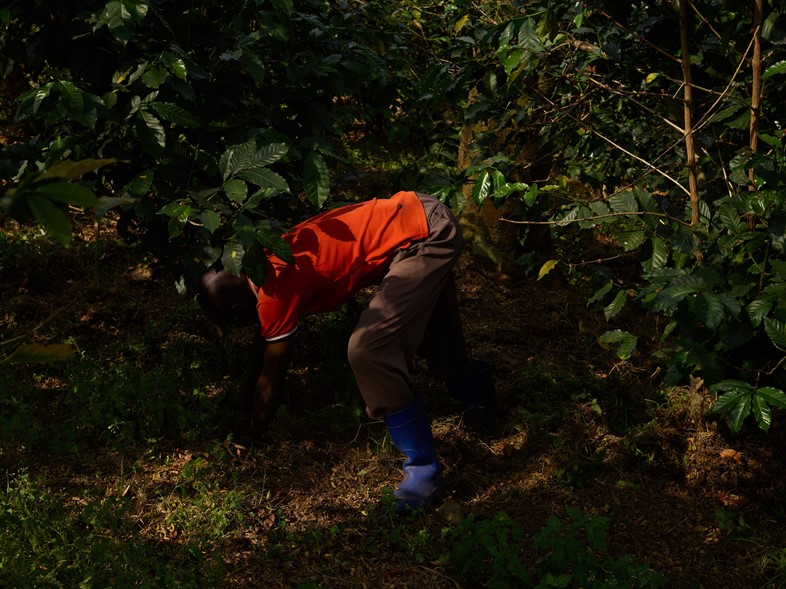
With this in mind, KIVU will “commission local and international artists to create bodies of work inspired by the coffee’s country of origin,” the project’s website details, “making coffee a unique platform for new cross-cultural storytelling.” “I’m not a fool, I don’t think the world needs another coffee brand, per se, and I don’t need to compete in a coffee market where there are people just driving that. But what I can do, and what feels natural to me, is to position KIVU around the coffee industry, and place it in more cultural hubs and more lifestyle stores where people can catch these stories.” Essentially it is about making people feel connected, she says.
“The voices need to come from many places – it’s the exchange they have that feels important” – Christina Hardy
Hardy is keen to look both to local and to international artists to commission the imagery. “The voices need to come from many places – it’s the exchange they have that feels important,” she says. “I might sit across from you at a table, and there might be a lot of things that I find intriguing and beautiful about you that you might take for granted, and vice versa.” As such, the project launches with a series of vivid and dynamic photographs taken by Viviane Sassen, who spent several years of her early childhood in Kenya. Over the course of the trip to the DRC with her husband and son, Sassen travelled around the whole circumference of the lake with a local fixer, Hardy says. For her to be the first artist to contribute was a dream. “She is a master of photography, and she works so sensitively. She has the ability to capture new universal themes of humanity, and nature, and that’s the way I had to start the project.” Hardy plans to partner with initiatives in DRC to support local communities, where collaborative work with its collaborators is already having tangible results. “One of the first is GALS, a gender-justice program initiated by TWIN, my trading partner, where they teach men and women farmers how to solve problems together and address household dynamics.”
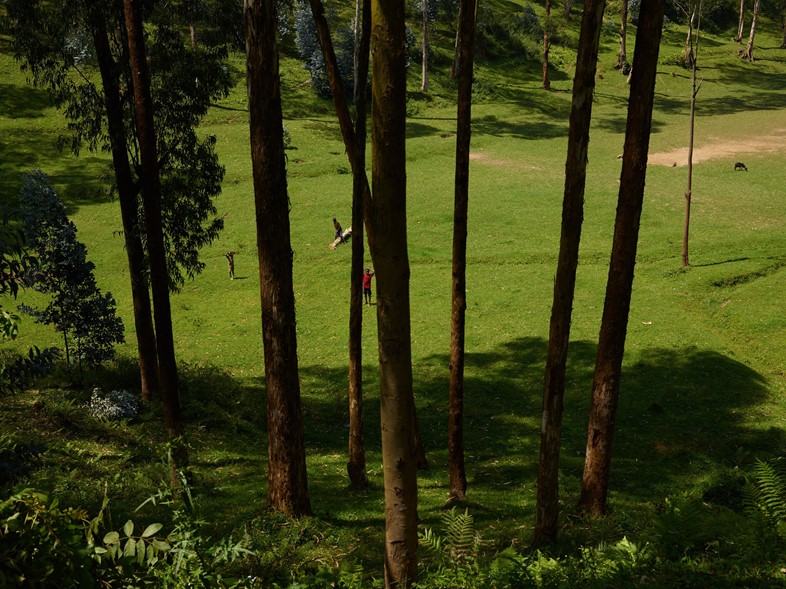
Given the prominence of metaphors about connection – between individuals, and communities, and creatives, and cultures – it seemed obvious to name the project after the lake that separates DRC from Rwanda. The lake is volcanic, trapping a huge volume of highly explosive methane gas underneath it – and crossing it, as small boats do daily, can be a risky process. “It’s the most serene body of water – it’s so beautiful,” says Hardy. “It seems like you’re in another world, I’m very romantic about it. And yet on the other hand, it’s a dangerous lake. So I thought, ‘I have to name this KIVU’.” Watch this space.
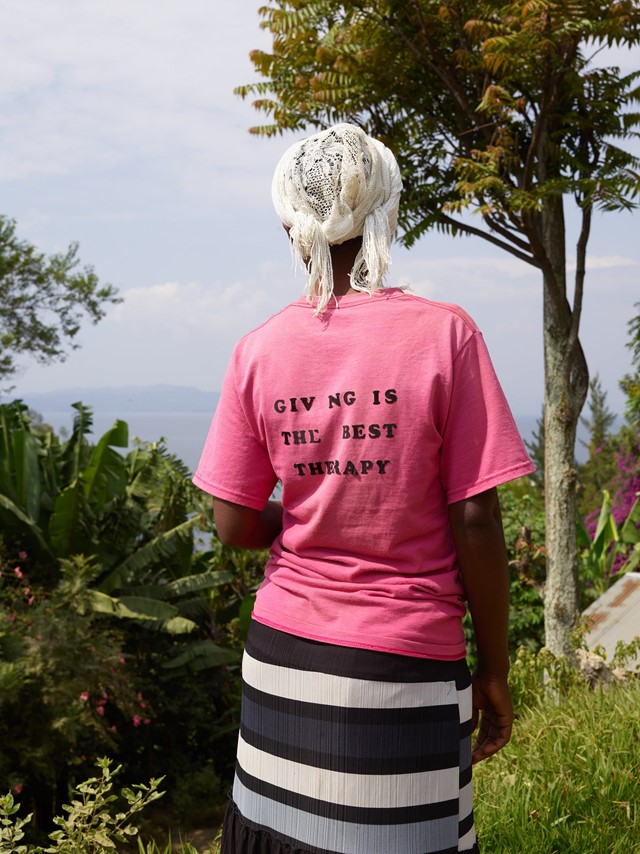
To find out more about KIVU, visit the website.
